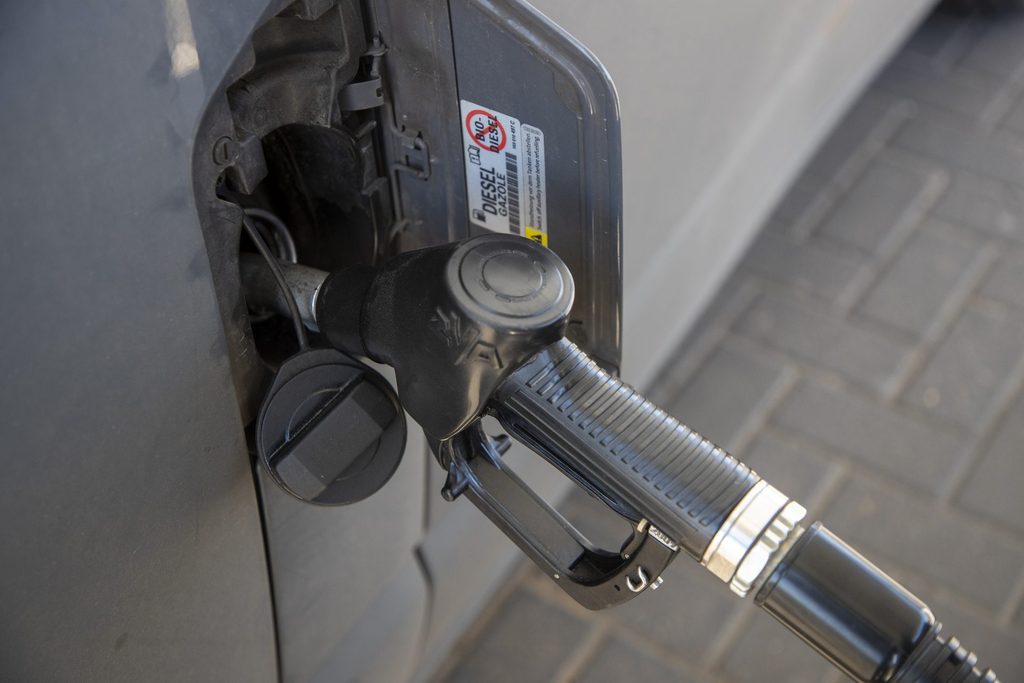Since 2019, Belgium spent a total of €2.79 billion subsidising the sale of diesel fuel, Gazet van Antwerpen reported. Of this sum, the majority of these subsidies went to foreign companies.
Diesel, now known to be four times more polluting than regular petrol in terms of nitrogen dioxide pollution, was once viewed as an environmentally conscious choice for European motorists. Many countries put generous subsidies on diesel to encourage the use of diesel-powered engines.
In the wake of the Volkswagen emissions scandal and new assessments of the environmental impact of the fuel, most of these subsidies have since disappeared. But not everywhere.
In Belgium, the government offers an excise duty refund on diesel for vehicles weighing over 7.5 tonnes. This rebate amounts to around €0.20 per litre. Given the environmental impact of diesel, the Flemish-speaking socialist party Vooruit wants to definitively put an end to the subsidy.
"All of Europe refuels at our expense," Vooruit MP Kris Verduyckt told Gazet van Antwerpen. "In the fight against global warming, it is important that we ban fossil fuels. But what is Belgium doing? We are subsidising those fuels to the full."
Not only do heavy goods vehicles from Belgium and other EU countries benefit from the rebate, so too do some taxis and buses. This rebate has existed since 2004, but the cost of the excise duty refund has mounted in recent years. Belgium paid €2.79 billion in diesel subsidies since 2019, of which €1.5 billion of which went to foreign companies.
The Flemish MP complains that, due to European competition rules, the rebate has to be open to all European motorists in Belgium. This discount, which must be manually applied for, is becoming increasingly known to foreign drivers, increasing the financial burden on the Belgian state.
Green investments
The Federal Government is also considering phasing out this subsidy. Finance Minister Vincent Van Peteghem originally proposed reducing the rebate by 30% to €0.14 by 2026 as part of the government’s planned tax reforms. Unfortunately, this did not materialise, as the government failed to reach an agreement on taxation in July.
Vooruit argues that the failure of Belgium's tax reform should not mean that the government should abandon its attempt to ditch the subsidy. The socialists advocate for supporting Belgian companies in different ways, such as investments into technological innovation to make the Belgian transport sector "more environmentally friendly."
Related News
- European innovation drives advances in electric lorry charging and production
- Diesel De Lijn buses to be allowed in low emissions zones until 2027
The Flemish Transport and Logistics Association (VIL) pushes back against the proposal to ditch the subsidy. The Association is not opposed to green investments into the Belgian transportation sector, but says that it is not financially viable to switch entirely to electric vehicles, at least for now.
"For many companies, this subsidy makes the difference between keeping their heads above the water or going under," said policy officer Frederic Keymeulen.
"Moreover, if this rebate is eliminated, Belgian companies will lose the little competitive advantage they still have over countries where labour costs are a lot lower. Not to mention, the foreign trucks that still fill up here also contribute money to the Belgian treasury."

